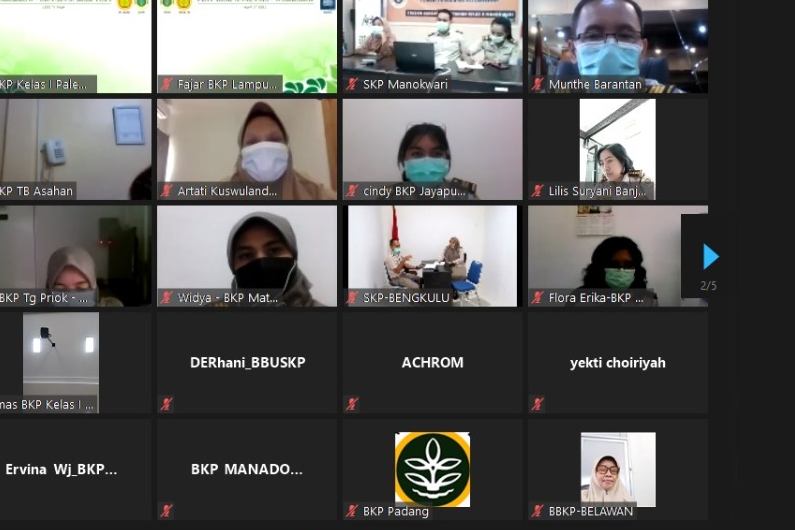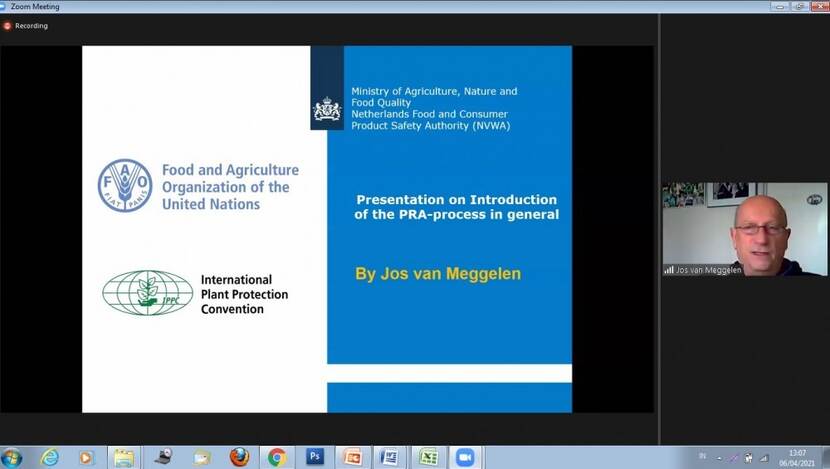Indonesia - The Netherlands improves cooperation on plants pests risk analysis
The Netherlands’ Food and Consumer Product Safety Authority from the Ministry of Agriculture, Nature and Food Quality (NVWA) collaborated with Indonesia’s Center for Plant Quarantine and Biological Safety (KTKHN) in an effort to increase the agricultural quarantine officials’ competence in analyzing the risk of plant pests (AROPT) through a series of online workshop held from April to May, 2021.

The online workshop featuring speakers from NVWA, followed by officials from the KTKHN and 52 technical implementing units within the KTKHN, discussing pest risk analysis (plant-disturbing organisms quarantine) on agricultural commodities to avoid damage on the agricultural sector, which may pose an impact to a country’s economy.
During the workshop held in April, Jos van Meggelen, a representative from NVWA explained about the importance of plant pests risk analysis for a country based on the PRA Process. “The plants’ pests may enter in various ways, including through the media carrier itself, or other means such as human activities, transportation, war vehicles, and others," Jos van Meggelen said, adding that comprehensive analysis must be carried out by recording all possible entry of the pests.
The process of analyzing pest risk in the Netherlands, which refers to the Europe and Mediterranean Plant Protection Organization (EPPO) covers three main processes, namely initiation, assessment, and pest risk management. Based on ISPM 11, which is relevant to the elements of risk regarding the possibility of entry, settlement, spread, and the impact of pests, Jos van Meggelen explained.

Another speaker was Marieke Florijn, who shared about the “Introduction of the Express PRA of EPPO".
The workshop also discussed the results of AROPT virus types in potato seeds, with six groups were assigned to analyze based on the types of pests and diseases in potatoes.
The Indonesia’s Agricultural Quarantine teams shared their findings on types of insects, applied tests and methods for mites, fungi, nematodes, bacteria, and weeds. The series of workshops will continue on May 20, 2021.